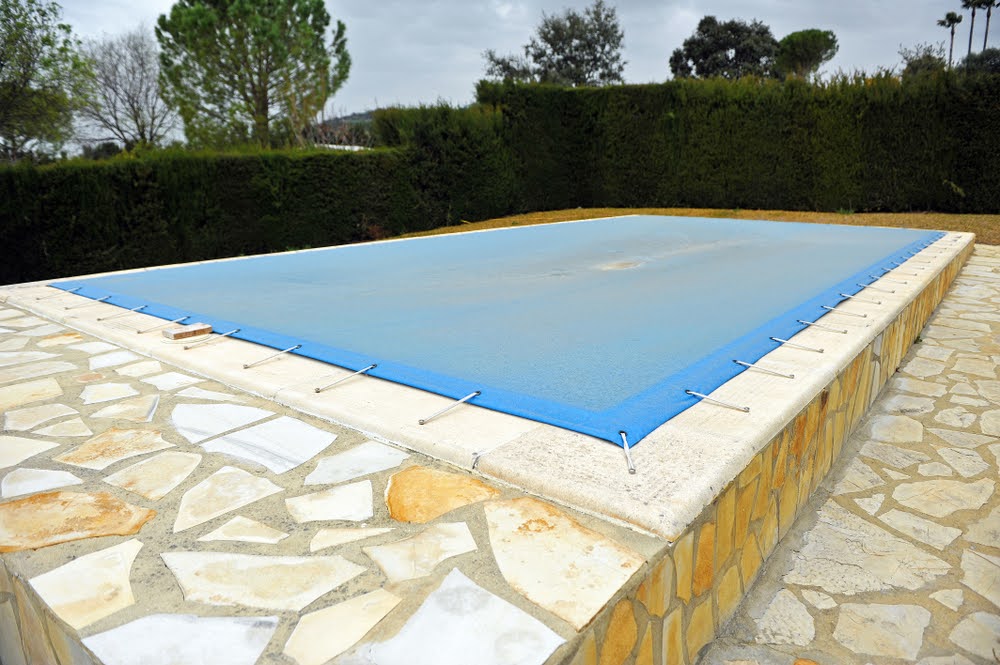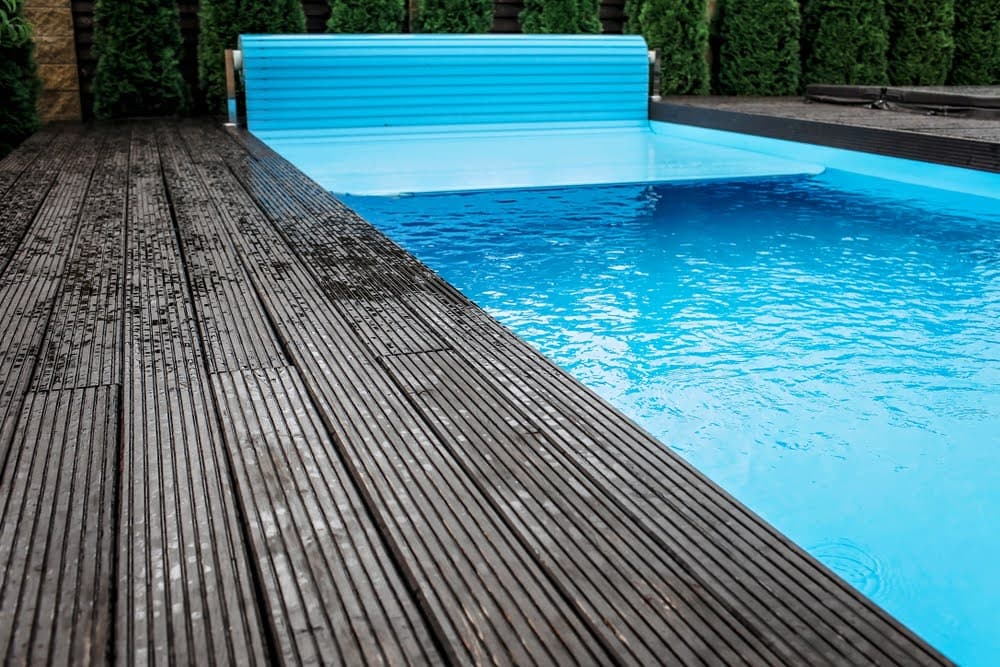What Are the Different Types of Pool Covers?
Having a cover for your pool not only makes cleaning and upkeep easier, but it can also maintain the water levels, saving you money in the long run. With all these benefits, it’s not hard to see why so many pool owners opt for some type of cover. If you’re looking into purchasing one for your pool, you might be overwhelmed by the options available. Not to worry, as in this post, we’ll review some of the most popular types of pool covers available, along with their pros and cons.
The Importance of Pool Covers
There are several reasons why it’s recommended to have a cover for your pool. Different types of covers may serve unique purposes, but in general, the goal of a pool cover is to help you conserve water, keep debris out of your pool and limit the risk of accidents when your pool is unsupervised.
Leaf Net Covers
Leaf net pool covers are designed to keep leaves and larger debris out of your pool. They are typically placed over another type of pool cover, such as a tarp cover, to provide an added layer of protection against debris.
Pros
- Leaf net covers are lightweight and easy to handle.
- They are effective at keeping leaves and other large debris out of your pool, reducing maintenance time.
Cons
- Leaf net covers are not strong enough to prevent accidents and should not be used as a safety measure.
- They allow rainwater to pass through, which can dilute pool chemicals and lower water levels.
Tarp Covers
Tarp covers are held in place by water bags and provide a simple and cost-effective way to cover your pool. They are usually made of a heavy-duty plastic material that helps keep debris out.
Pros
- Tarp covers are easy to install and remove.
- They effectively keep out debris and help maintain water levels.
Cons
- Tarp covers can be less durable than other types and may need to be replaced more frequently.
- Water can accumulate on top of the cover, requiring a pump to remove it.
Safety Covers

Safety covers are anchored to the deck and designed to prevent accidents by supporting the weight of a person or pet. They provide complete coverage, keeping out debris, animals, and sunlight.
Pros
- Safety covers offer the highest level of protection, preventing accidents and keeping everything out of your pool.
- They help extend the life of your pool liner by protecting it from UV rays.
Cons
- Safety pool covers have a shorter lifespan compared to other options due to various weather conditions.
- They may require investing in a pump to clear water that collects on or around the surface of the cover.
Automatic Pool Covers

Automatic pool covers are available in various materials and, as the name suggests, allow you to cover and uncover your pool automatically with the push of a button.
Pros
- Automatic covers are the easiest type of pool cover to use, with minimal effort required.
- They reduce clutter and the physical labour involved in using a manual cover.
Cons
- Automatic covers require regular upkeep for the mechanical and electrical parts.
- They are susceptible to power loss, which can prevent the cover from opening or closing.
Solar Pool Covers
Solar pool covers combine the benefits of a solid pool cover and a mesh cover by allowing in just enough light to keep your pool warm while acting as a filter against dirt and debris.
Pros
- Solar pool covers are easy to install by yourself.
- They save money on water and chemical usage and can warm your pool significantly, extending your swimming season.
Cons
- Solar pool covers are constructed with lightweight materials and can’t support significant weight.
- They may tear or break if an animal or person falls on the cover, potentially leading to injuries.
Which Pool Cover is Right for You?
Now that we’ve looked at the most common types of pool covers, you might already know which is best for your backyard oasis. However, if you still aren’t sure, consider other factors like how often you swim in your pool, whether you have children or pets who will be near it, if you have enough storage space for the cover, and your overall aesthetic style, as some covers are nicer to look at than others. For professional advice, don’t hesitate to contact us at Benson Pools. We can help find and install a pool cover that’s perfect for your family’s needs.


